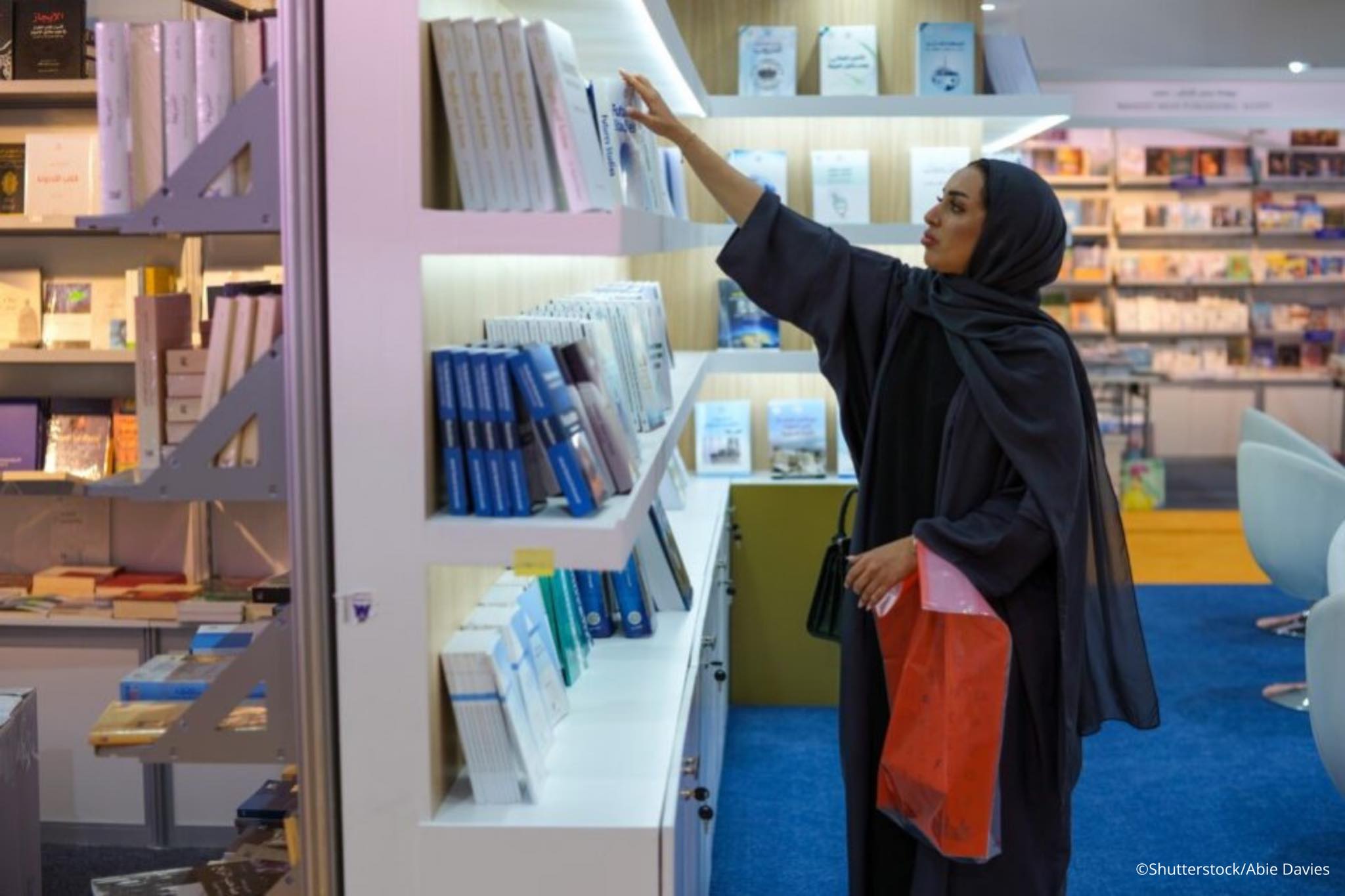العودة

Arabic novels to bridge cultures
اليونسكو
2023 - 12 - 04
The United Nations Educational, Scientific, and Cultural Organization (UNESCO), Qatar National Library (QNL), and Sultan Bin Abdulaziz Al-Saud Foundation organized the “Arabic Novels to Bridge Cultures” workshop in the QNL premises on 28 October 2023, to promote Arabic literature for multicultural understanding.

The United Nations Educational, Scientific, and Cultural Organization (UNESCO) organized, along with the Qatar National Library (QNL) and the Sultan Bin Abdulaziz Al-Saud Foundation, the “Arabic Novels to Bridge Cultures” workshop in the QNL premises on 28 October 2023, to promote Arabic literature for multicultural understanding.
Novels are not only words on pages, but also bridges that transport us to diverse cultures and worlds. The UNESCO pilot event seeks to elevate the novel's role in connecting diverse cultures and facilitating mutual understanding. Anchored within the annual World Novel Week and aligned with UNESCO's Prince Sultan Bin Abdulaziz Al Saud Programme for the Arabic Language, this workshop underscores the significance of Arabic literature and supports the production, publication, and reading.
The “Arabic Novels to Bridge Cultures” workshop serves as a platform to share experiences and best practices in designing and implementing policies and measures aimed at cultivating interest in reading and writing in Arabic. The event brings together prominent writers, critics, language specialists, and enthusiasts in a collaborative effort to celebrate Arabic literature.
A creative writing workshop titled “Words that Unite: Arabic Storytelling for Youth” was held, aimed to equip young authors with creative writing techniques to craft impactful stories in Arabic. Pioneering the exchange of Arabic knowledge through storytelling, the workshop prioritized preserving the Arabic language and promoting its rich literary heritage. UNESCO aspires to contribute to the cultural vitality of Arabic literature by empowering young authors to express their ideas eloquently within the tapestry of the Arabic language.
The workshop facilitated the drafting of short stories and included a discussion on the pivotal role of Arabic literature in serving humanity, emphasizing its enduring importance in fostering cross-cultural connections and understanding
أحدث المنشورات
القائمة الكاملةاليونسكو
المستقبل على المحك: لماذا الاستثمار في التعليم أمر بالغ الأهمية؟
يسلط هذا التقرير، الذي أعدّته اللجنة التوجيهية الرفيعة المستوى المعنية بالهدف الرابع من أهداف التنمية المستدامة (SDG4) بالتعاون مع الشراكة العالمية من أجل التعليم (GPE) ونُشر في عام 2024، الضوء على الحاجة المُلِحّة لتعزيز الاستثمار في التعليم كوسيلة أساسية لمواجهة التحديات العالمية، بما في ذلك تغيّر المناخ، والتطورات التكنولوجية، والتحوّلات الديموغرافية.
اليونسكو
المدن العربية تتألق في جوائز مدن التعلم لليونسكو لعام 2024
تُحرز المدن العربية تقدمًا كبيرًا في مجال التنمية المستدامة والتعلم مدى الحياة، مع تركيز متزايد على إنشاء بيئات تعليمية شاملة تُسهم في تحقيق الأهداف التنموية المحلية والعالمية. وقد احتفلت جوائز مدن التعلم لعام 2024، التي تُمنح من قِبَل اليونسكو، بهذه الجهود، مبرزةً المدن العربية التي تميزت في بناء مجتمعات تعليمية.
اليونسكو
مؤتمر اليونسكو العالمي الثالث للموارد التعليمية المفتوحة: تعزيز الوصول الشامل إلى المعرفة
انطلق مؤتمر اليونسكو العالمي الثالث للموارد التعليمية المفتوحة (OER) في 19 نوفمبر/تشرين الثاني 2024، في مركز دبي التجاري العالمي في دولة الإمارات العربية المتحدة، ليكون المرة الأولى التي يُستضاف فيها هذا الحدث في العالم العربي. نظّم مؤتمر اليونسكو بالتعاون مع مؤسسة محمد بن راشد آل مكتوم للمعرفة (MBRF)واستقطب أكثر من 500 مشارك ومشاركة من نخبة القادة العالميين، وصنّاع السياسات، وممثلي المؤسسات التعليمية، بما في ذلك وزراء، وأكاديميون، وخبراء من القطاع الخاص. وتركّزت المناقشات على مدار يومين حول تعزيز الاستفادة من الموارد التعليمية المفتوحة والتقنيات الناشئة، بهدف تحقيق وصول عادل وشامل إلى التعليم، وتقليص الفجوة الرقمية على الصعيد العالمي.
اليونسكو
الأمم المتحدة تحتفي في شهر ديسمبر/كانون الأول بحقوق الإنسان، والأشخاص ذوي الإعاقة، واللغة العربية
تُحيي الأمم المتحدة في شهر ديسمبر/كانون الأول ثلاث مناسبات بارزة تُعنى بحقوق الإنسان، وبحقوق الأشخاص ذوي الإعاقة، وباللغة العربيّة، ممّا يجعل هذا الشهر فرصةً عالميّةً للتفكير والعمل. وتقود اليونسكو الجهود لتعزيز التعليم الشامل، وحماية حقوق الإنسان، والاحتفاء بالإرث الثقافيّ واللغويّ للّغة العربيّة، من خلال سلسلة من الفعاليات والمبادرات.